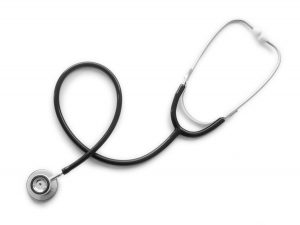 Are you experiencing abdominal pain? Do you have a noticeable bulge that may or may not be tender to the touch? The culprit could be a hernia. Your next step is to promptly visit a doctor for an official diagnosis.
Are you experiencing abdominal pain? Do you have a noticeable bulge that may or may not be tender to the touch? The culprit could be a hernia. Your next step is to promptly visit a doctor for an official diagnosis.
The most reliable way to diagnose a hernia is with a physical exam by a doctor like Dr. Gregory Dumanian, who is extensively experienced in hernia repair.
If Dr. Dumanian suspects a hernia but cannot confirm it based on a physical examination alone, he may recommend an imaging test. One of the most common imaging tests is computed tomography, more commonly known as a CT scan.
CT scans are quick, non-invasive and painless. They use X-rays to produce images of the inside of your body, including your organs, tissues and blood vessels.
What Does a CT Scan Involve?
During a CT scan, you will lie down on an exam table that moves through the CT machine. The machine resembles a doughnut with a short tunnel in the middle.
As you move through the machine, the X-ray tube and electronic X-ray detector rotate around you. A technician at a computer workstation in another room operates the machine and computer program that processes the information captured by the CT machine and turns it into two-dimensional cross-sectional images of your body.
After the scan, the technician will confirm that the images captured are good quality and can be accurately interpreted. A radiologist will analyze the images and send a report to Dr. Dumanian.
What Else Should I Know About Getting a CT Scan?
You will need to tell Dr. Dumanian prior to your CT scan if there is any possibility that you are pregnant. Medical conditions like heart disease, asthma, diabetes, kidney disease or thyroid problems may increase the risks of CT scan, so be sure Dr. Dumanian has your full health history.
Before starting the exam, you will need to remove any metal jewelry or accessories, as metal can interfere with the exam. If you wear hearing aids, dentures or other removable dental work, you may be asked to remove them prior to the exam. Loose-fitting clothing can make the exam more comfortable.
Some people have concerns about the risk of cancer caused by excessive radiation exposure. However, this risk is very slight with CT scans. Furthermore, the benefit of an accurate diagnosis of your medical condition usually outweighs these minimal risks.
For more information about the process of diagnosing a hernia, please contact our office today.

